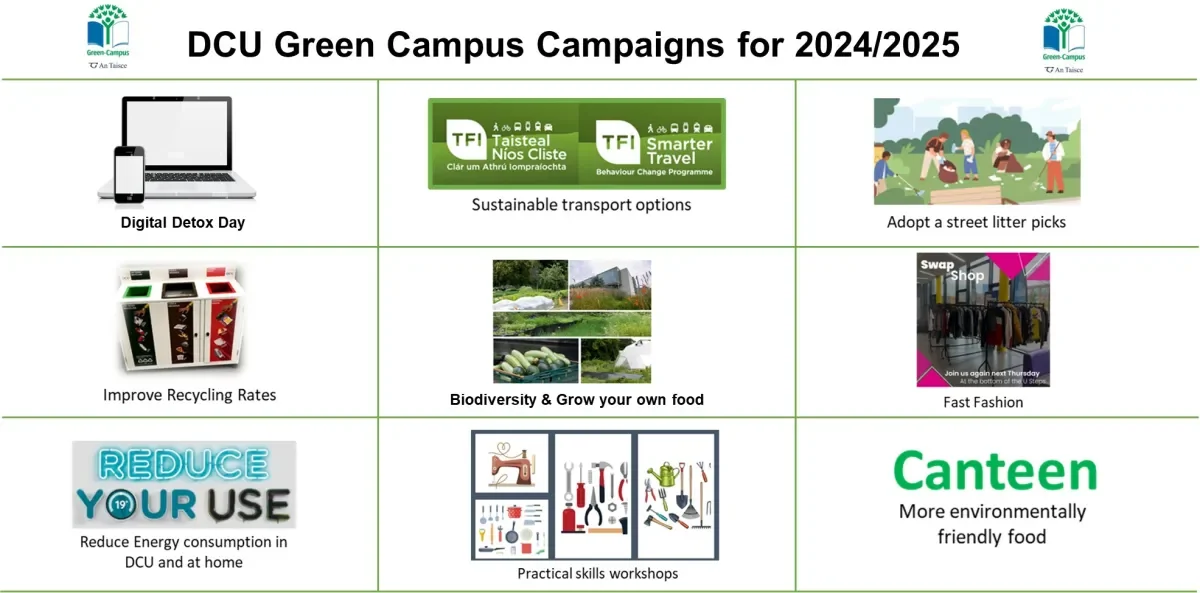
Board 2: Sustainability on Campus
DCU recognises the immense scale of the climate change and biodiversity emergency as well as how these interconnect with the broader challenges of climate and social justice. These challenges are daunting and the timescales for action are short.
DCU and the Irish university sector has a crucial role to play in supporting climate action through education and up-skilling, supporting research, and through day to day operations to reduce our own greenhouse gas emissions. To this end, sustainable development is identified as one of the underpinning drivers in DCU’s Strategic Plan 2023-2028.
The images here highlight the scale of the challenge but also the many responses that DCU has put in place to reduce emissions, promote biodiversity, and engage students and the local community in essential action for change.
Greenhouse Gas (GHG) Emissions
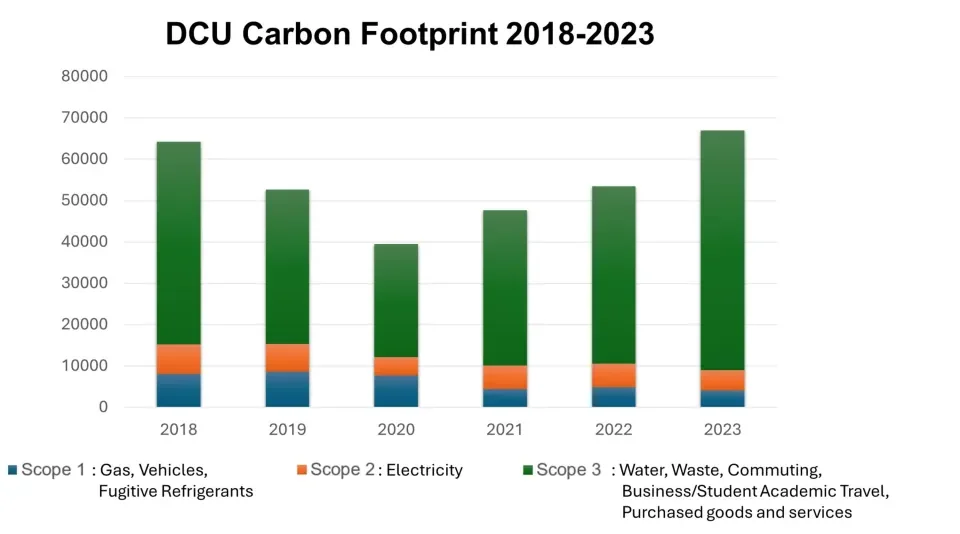
DCU Greenhouse Gas Emissions
Greenhouse gases are gases in the earth’s atmosphere that trap heat. During the day, the sun shines through the atmosphere, warming the earth’s surface. At night the earth's surface cools, releasing heat back into the air. But some of the heat is trapped by the GHGs in the atmosphere. That's what keeps the earth’s temperature at an average 14˚C.
Without this greenhouse effect, temperatures would drop to as low as -18˚C; too cold to sustain life on earth.
But human activities are changing earth's natural greenhouse effect with a dramatic increase in the release of GHGs. Scientists agree this is the cause of global warming and climate change.
While GHG emissions in Ireland are down, projections show that key, legally binding targets will not be met; therefore, it is vital that all sectors continue to take all possible action to reduce their emissions.
https://www.epa.ie/our-services/monitoring--assessment/climate-change/ghg/
DCU’s Climate Action Roadmap
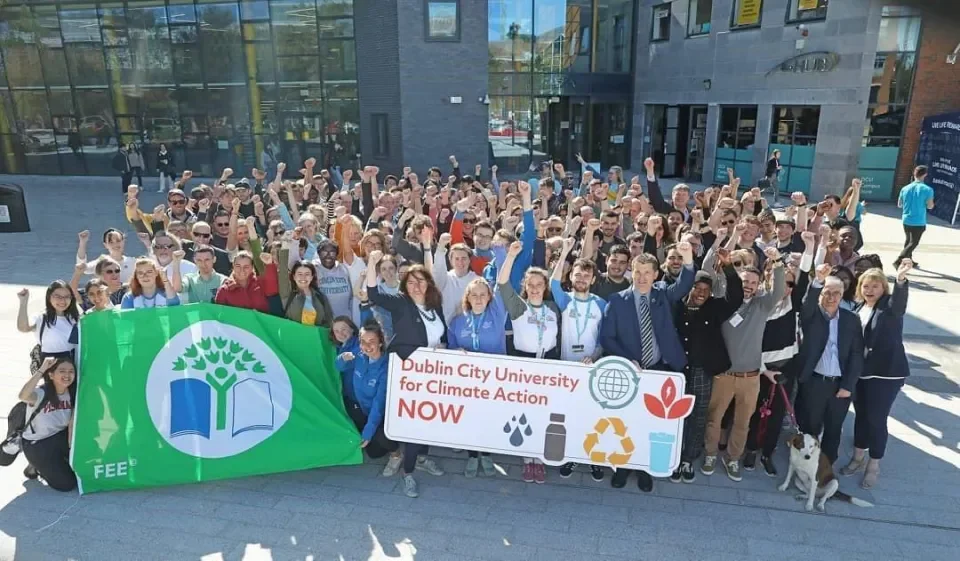
DCU for Climate Action
DCU’s Climate Action Roadmap includes education, training and engagement initiatives for our broad DCU community. It proposes technological solutions to decarbonise our buildings and vehicles, and includes a suite of actions that examine our ways of working and resource use in order to reduce our indirect operational emissions.
https://www.dcu.ie/sites/default/files/sustainability_dcu_editor/2023-07/DCU_CAR_2023_Acc.pdf
Sustainability DCU
Sustainability DCU works to embed sustainability principles and practices across all university activities and the broader community. Working with a broad range of stakeholders locally, nationally and internationally, Sustainability DCU aims to inform and engage our community by co-creating and implementing collective actions that support our transition to a fair, just and values-based future for all.

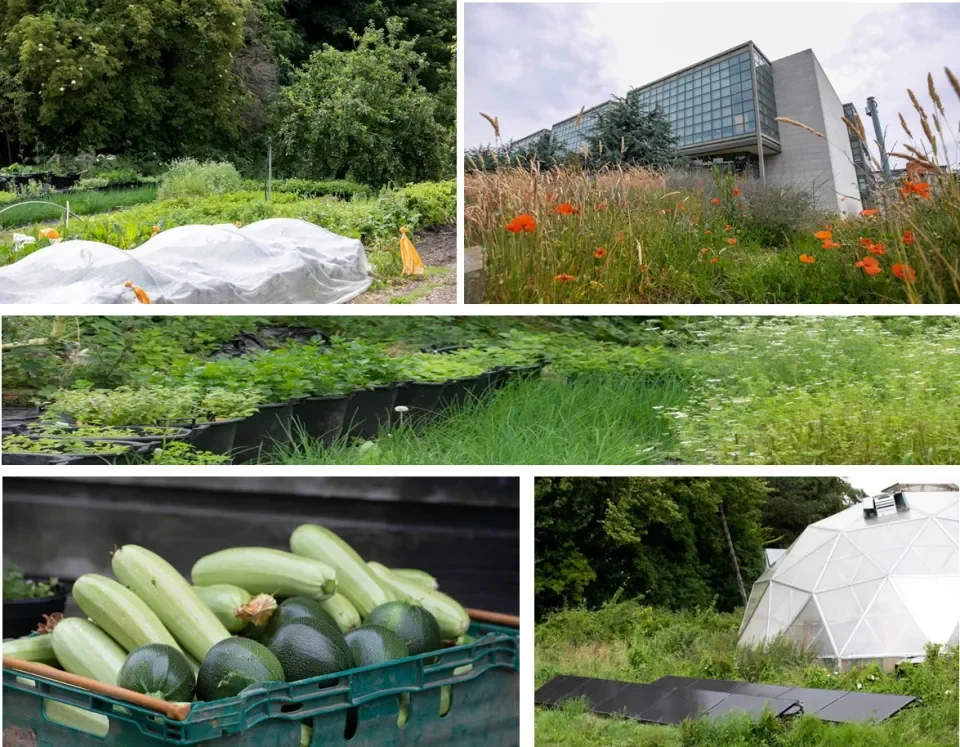
DCU Biodiversity
Biodiversity is the variety of life on Earth, in all its forms, from genes and bacteria to entire ecosystems such as forests or coral reefs. Biodiversity forms the web of life that we depend on for so many things, including food, water and a stable climate. But nature is in crisis. Up to one million species are threatened with extinction, many within decades. Irreplaceable ecosystems like parts of the Amazon rainforest are turning from carbon sinks into carbon sources due to deforestation. And 85 percent of wetlands, such as salt marshes and mangrove swamps which absorb large amounts of carbon, have disappeared.
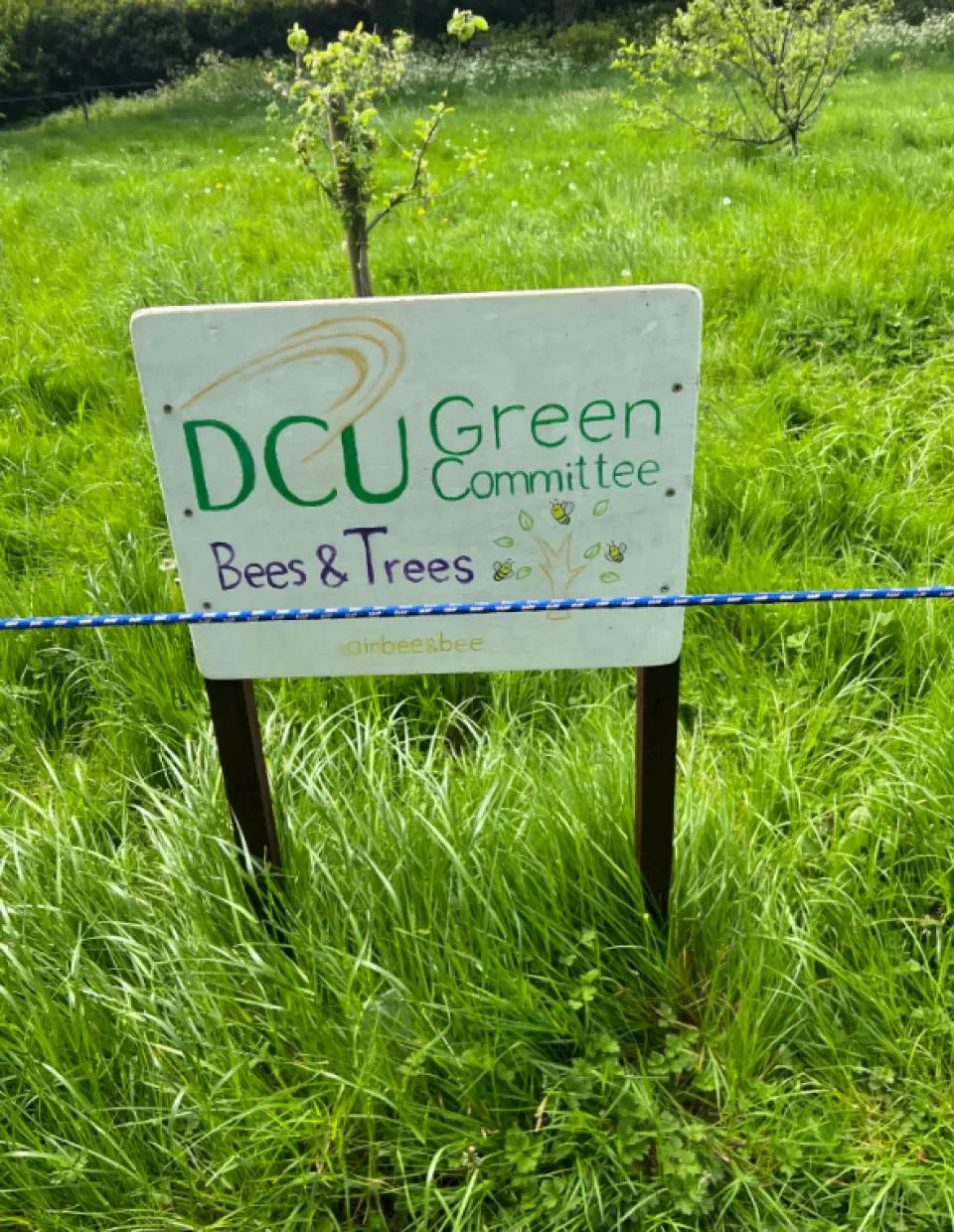
DCU Bees and Trees
The main driver of biodiversity loss remains humans’ use of land – primarily for food production. But climate change is playing an increasingly important role in the decline of biodiversity. Climate change has altered marine, terrestrial, and freshwater ecosystems around the world.
DCU’s Biodiversity Action Plan aims to enhance and protect biodiversity, and to ensure everyone at DCU understands how vital it is to our lives.
https://www.dcu.ie/sustainability/biodiversity-plan
Green Campus at DCU
DCU has been awarded Green Campus status for all of our academic campuses.
The Green Committee, made up of volunteer staff and students, works to ensure DCU contributes positively to a just and sustainable future for everyone. Guided by detailed action plans, the committee works to have a positive impact within and beyond the university.
